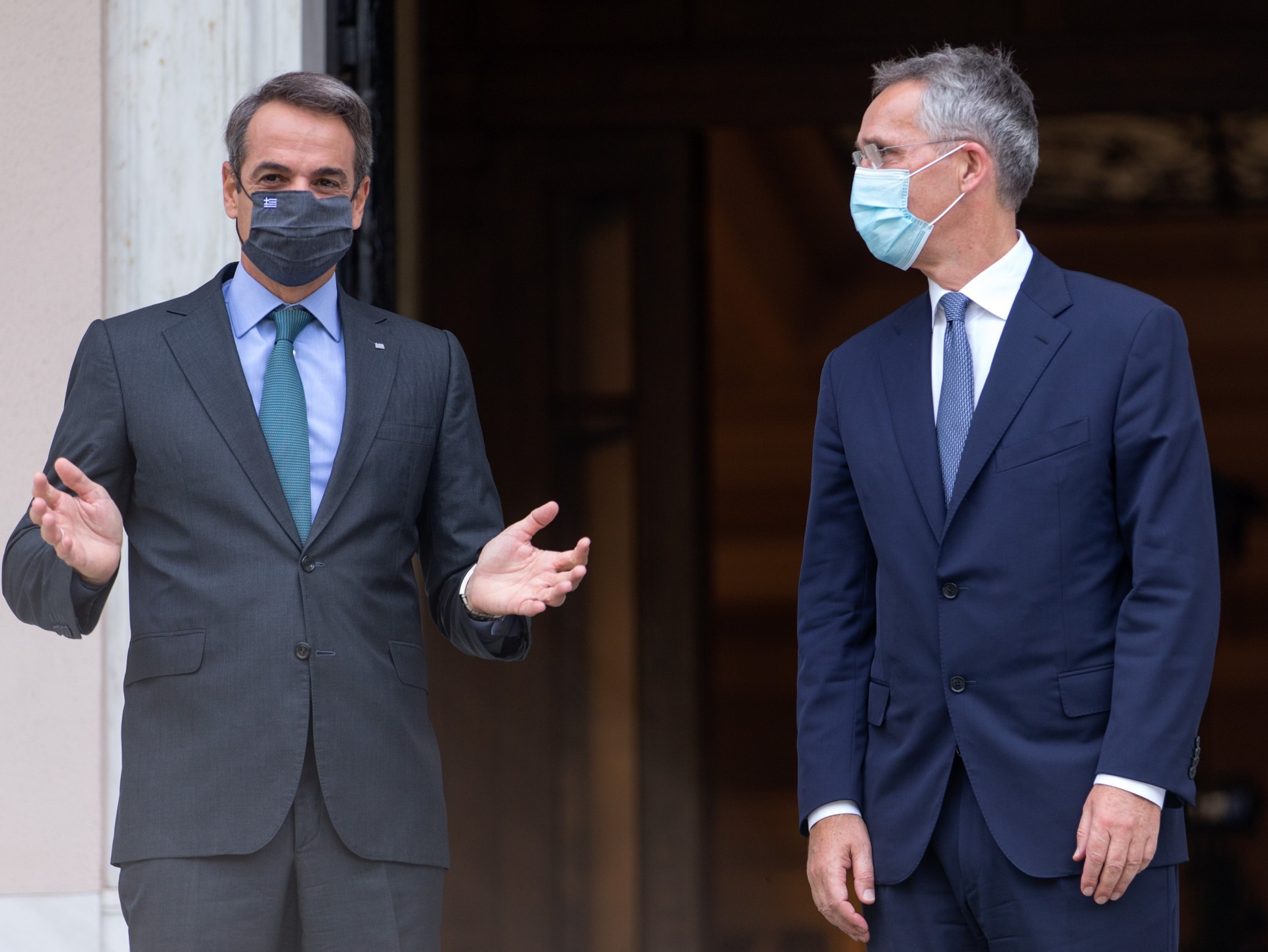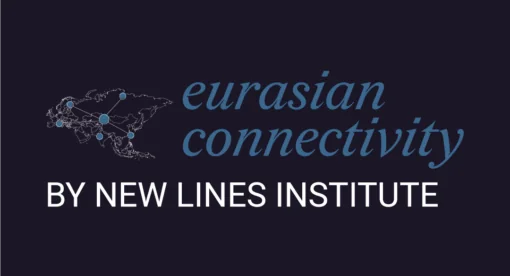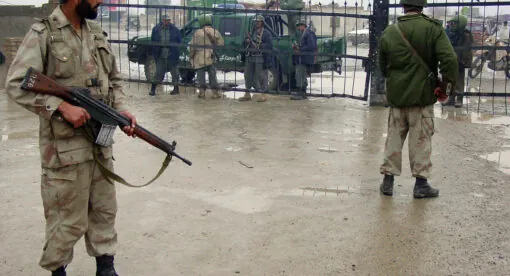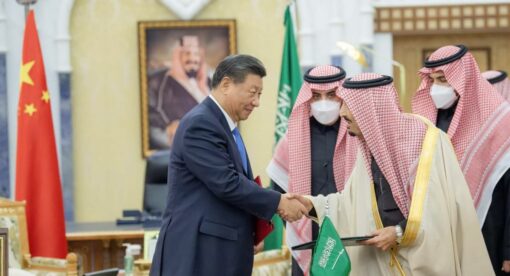As Turkey has expanded its regional influence, Greece increasingly led efforts to counterbalance Ankara’s perceived aggression.
Introduction
Over the past two to three years, Greece has made a large-scale effort to bolster security ties with partners inside and outside the Eastern Mediterranean amid rising tensions with Turkey, its traditional rival and occasional adversary. As Turkey has increased its operational footprint and political influence in the region, Greece has worked to transition the Eastern Mediterranean Gas Forum (EMGF) from an energy organization into an informal political and security coalition that spans from Greece’s immediate periphery in the Eastern Mediterranean to the Arabian Gulf, with a series of military exercises, dialogues, and arms deals that serve Greece’s interest in countering Turkish encroachment.
Greece is especially concerned that Turkey’s naval expansion and the sharpening rhetoric toward Greece that often crosses the line into bellicosity will lead to an armed conflict – a scenario that would thrust NATO, of which Greece and Turkey are both members, into an existential predicament. Athens has sought to build these new partnerships to create an extra-European diplomatic and military hedge against potential Turkish aggression in the Aegean Sea. However, a recent alignment between Turkey and key members of the EMGF and Gulf allies is causing Greece to recalculate its strategy. The onset of rapprochement between Ankara, Cairo, Abu Dhabi, and Riyadh has raised concerns in Athens about the sustainability of its informal coalition in the Mediterranean. Yet as the United States’ status as a military guarantor in the Middle East fades and U.S. planners seek new basing options straddling several continents, Greece is identifying new opportunities to counterbalance Turkey.
Greece’s Mediterranean Leadership
In 2019 and 2020, Turkey, driven by its Mavi Vatan doctrine, pushed its Mediterranean neighbors’ limits by dispatching a string of vessels to explore and conduct offshore drilling in the disputed waters of the Republic of Cyprus and Greece. Simultaneously, Turkey scaled up its defense posture, building upon existing partnerships with Qatar and Libya’s Government of National Accord (GNA) to bolster its forward operational presence and influence in the Eastern Mediterranean. Turkey also began an information campaign showcasing its growing naval industry, including next-generation vessels, a message to its Mediterranean rivals.
During this time, Greece poised itself as an informal leader of an accelerating coalition to counter Turkish aggression. The threat of Turkish tests to Greece’s exclusive economic zones and clashes with Greek maritime vessels effectively rallied a slew of partners inside and outside of the Mediterranean such as Egypt, Israel, the UAE, and France to coalesce against Ankara and build up Greek defenses. The 2019 Turkish-GNA maritime border demarcation agreement created a presumptive zone that ran across key Greek islands in the Mediterranean, especially Crete, the site of Souda Bay, Greece’s most important multilateral basing site. Toward the effort of countering Turkey’s diplomatic and military efforts, Greece and its partner, the Republic of Cyprus, were effective in helping establish the EMGF, a forum for energy disputes and projects that soon transformed into an informal defense and political coalition.
Athens’ insecurity not only incentivized an uptick in joint military exercises with Mediterranean neighbors such as Egypt, Italy, and France but also attracted extra-regional partners that shared soured relations with Turkey such as the UAE and Saudi Arabia. Notably, Greece recently signed a bilateral security agreement with France that would commit both parties to come to each other’s defense if they are attacked, even if the opponent is a NATO member. This agreement, which has tacit U.S. backing, is a significant step forward for Greece’s extended deterrence, with the obvious intention of confronting a potential Turkish campaign in the eastern Mediterranean.
Mediterranean escalation also demanded increased U.S. support. In addition to holding continual exercises with the U.S. 5th Fleet and hosting a key drone facility for U.S. operations in Africa at the Greek base in Larissa, Greece received signals from Washington that it sought to increase its operational presence in Souda Bay and other Aegean facilities amid fraying ties with Ankara over the Russian S-400 defense missile system dispute. During the Trump administration, Greece began an annual strategic dialogue with the United States where the countries struck a deal for U.S. investment in the expansion of Alexandropouli port in northeast Greece as a future hub for U.S. military logistics into Eastern Europe. This deal showed U.S. policymakers that Athens was still in the Western camp amid the growing specter of great-power competition with Russia in Europe. Furthermore, Athens, through the Greek-American lobby, accelerated outreach to powerful allied constituencies in Washington, D.C., especially the pro-Israel lobby, creating a new and increasingly important caucus on Capitol Hill: the Hellenic-Israel Alliance Caucus.
Therefore, as the threshold for conflict with Turkey remained low, Greece attracted promising security guarantors and long-term economic, infrastructural, defense, and political opportunities, transforming the Mediterranean’s balance of power.
Forecast
The Eastern Mediterranean looks much different than it did a year ago. Turkey continues to posture itself as a regional power. However, its growing economic constraints and political isolation, coupled with the inevitable U.S. withdrawal from the Middle East that has heightened anxieties over an emboldened Iran, have pushed Ankara toward rapprochement with Gulf and North African rivals, mainly Egypt, the UAE, and Saudi Arabia. Turkish officials have toned down hostility toward Mediterranean and Gulf competitors, diplomatic delegations have engaged in backdoor discussions and exploratory talks, and Turkish seismic vessels have been largely absent from contested Cypriot and Greek waters — raising speculation that Ankara is pursuing a longer-term policy of de-escalation in the Mediterranean and the Middle East. As cold ties between Turkey and partners have incrementally warmed, Greece has been forced to recalibrate its strategy, seeking to retain its security guarantors in the Middle East and the Gulf.
While Turkey has pursued rapprochement with rivals in the GCC, Egypt, and Israel, there are limits to the extent of normalization. These countries continue to hold drastically different ideological agendas, particularly in how they approach political Islamist groups like the Muslim Brotherhood and the normalization process with Israel. Despite pressure for withdrawal from conflict zones such as Libya, Syria, Nagorno-Karabakh, and Iraq, Turkey is showing few signs that it will roll back its forward-leaning military posture and backing of foreign paramilitary forces. And while Turkey identified its largest gas field to date in the Black Sea in Sakarya, with a timeline for production for 2023, Turkish imperatives to gain influence in the Eastern Mediterranean and identify alternative energy resources that cannot become interrupted by its Black Sea rival, Russia, remain strong.
As Turkey and its Middle Eastern counterparts begin to see the constraints to their rapprochement, Greece will seek to exploit gaps in cooperation, ongoing rifts with Ankara, and the oncoming U.S. withdrawal to retain Mediterranean and Gulf states as sources of security. One example of this strategy is the April 2021 deal over Saudi use of Greek missile systems that was struck just days after the U.S. decision to withdraw most of its missile systems in the kingdom. Similarly, Greece signed a landmark, 3 –billion euro strategic partnership with France that cements mutual defense assistance and purchases French frigates. The deal not only served as a major boost to France’s defense industry a week after it lost a lucrative nuclear submarine contract with Australia but also added a nuclear weapons-armed, European expeditionary backing to existing Greek deterrence capabilities.
Within the last few months, Greece also sought to deepen ties with the UAE and build on their 2020 Strategic Partnership agreement, docking the Hellenic Navy’s frigate Hydra at the Emirati Port of Zayed and sending its defense minister and chief of national defense general staff for a three-day visit to the UAE. Greece also inaugurated trilateral military training exercises with Emirati and Israeli forces.
Greek-Israeli security ties also have deepened. This year, Greece signed a $1.7 billion deal for Israeli air force training aircraft and has allowed the Israeli Defense Forces to use Greek territory to simulate a campaign against Hezbollah — a signal from Athens that it is no longer the country that gave refuge to Israel’s opponents. Greece has accelerated its outreach to other Middle Eastern countries such as Bahrain and Iraq, hosting them at the February 2021 Philia Forum in Athens as it seeks to position itself as a bridge between the Mediterranean and the Gulf. Through gestures of political support and equipment supply, Greece will seek to bolster the anti-Iran coalition in the wake of the U.S. drawdown, with the aim of preserving its Mediterranean coalition.
Recommendations
The U.S. should value the role that Greece is playing to strengthen Mediterranean-Gulf cooperation. As Washington reduces its military footprint in the region as it pivots to great-power competition in Eastern Europe and the Asia Pacific region, it should support its Middle Eastern partners in strengthening cooperative and defensive efforts to uphold regional stability and serve as a front against Iran. Greece offers the United States a strategic site for long-term basing for logistics and as a staging point for a range of military activities in Africa, Europe, and the Middle East. While the United States should not abandon its relationship with Turkey for Greece, if the Turkish government continues to regard the United States as a potential adversary and works against U.S. strategic interests, Greece offers another option for the U.S. to have a close partnership with a geographically vital nation in the Mediterranean.
For the time being, while the U.S. has leveraged its support of Greece as a counterweight to its troubled relationship with Turkey and should recognize the existing fault lines for potential re-escalation, there is still time to seek a balanced approach that incorporates both Greece and Turkey. Instead of further isolating Turkey — a move that has enjoyed mixed success — the U.S. should perceive Turkish-Gulf rapprochement and increased Hellenic-GCC ties as an opportunity to incorporate Turkey incrementally into the Middle Eastern security community in the wake of withdrawal.
Caroline Rose is a Senior Analyst and Head of the Strategic Vacuums program in the Human Security unit at the Newlines Institute. Her commentary and work on geopolitics and Middle Eastern affairs have been featured in Foreign Policy, The Independent, Alhurra, Limes Magazine, and the Atlantic Council’s MENASource. You can follow her on Twitter at @CarolineRose8.
Nicholas A. Heras is Senior Analyst and Program Head for State Resilience and Fragility in the Human Security Unit at the Newlines Institute. Prior to the Newlines Institute, he was the Director of Government Relations and the Middle East Security Program Manager at the Institute for the Study of War (ISW). Nicholas has authored or co-authored numerous reports and analytical articles on topics concerning Global and Middle East security issues, presented widely on these topics to multiple U.S. government and military agencies, and non-government organizations. He has been a frequent commentator to the media on Global and Middle East security issues. He tweets at @NicholasAHeras.
The views expressed in this article are those of the authors and not an official policy or position of the Newlines Institute.








